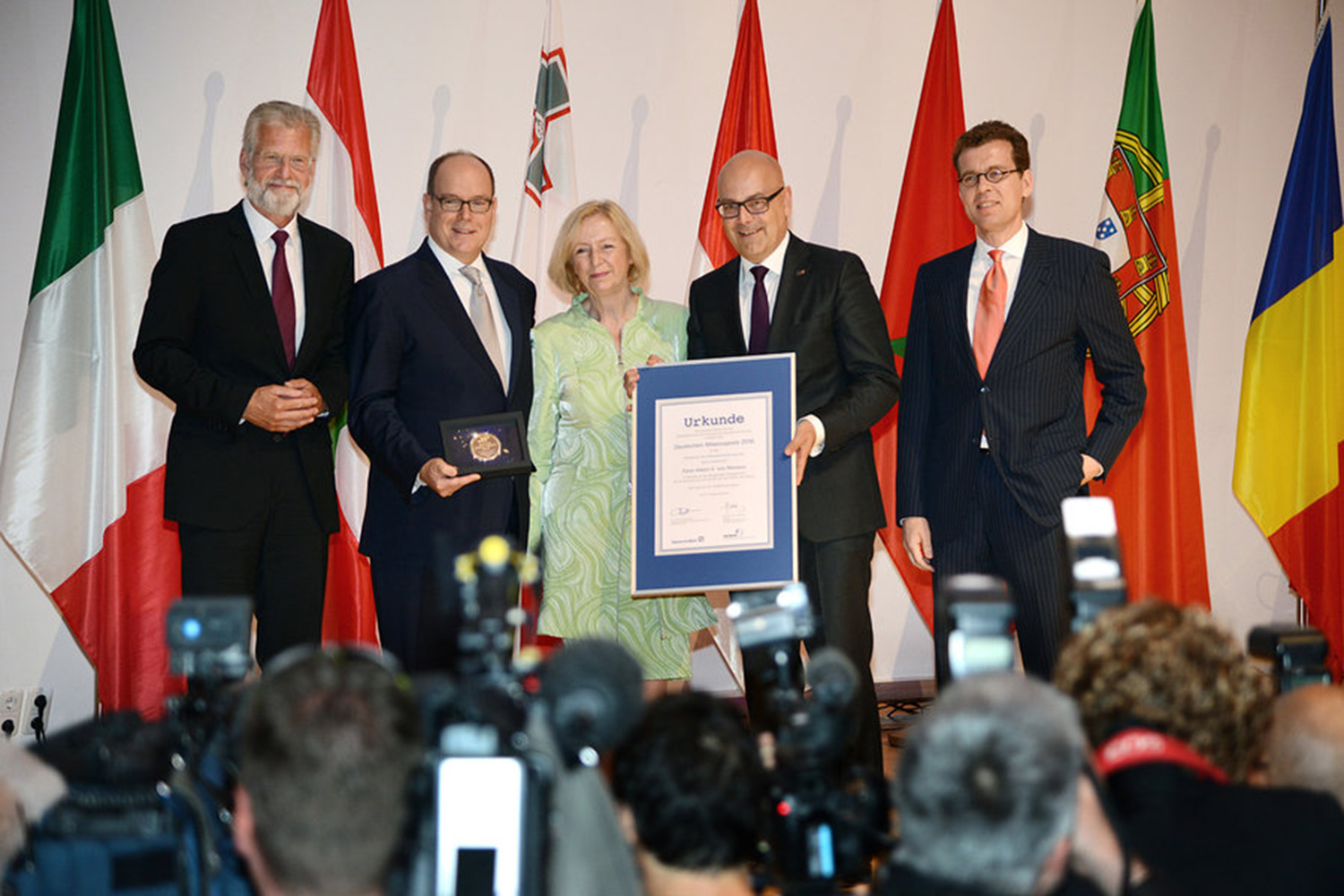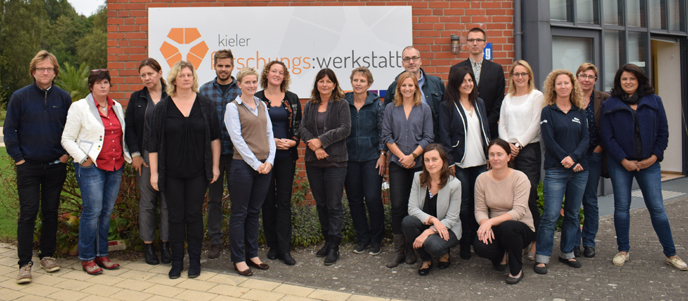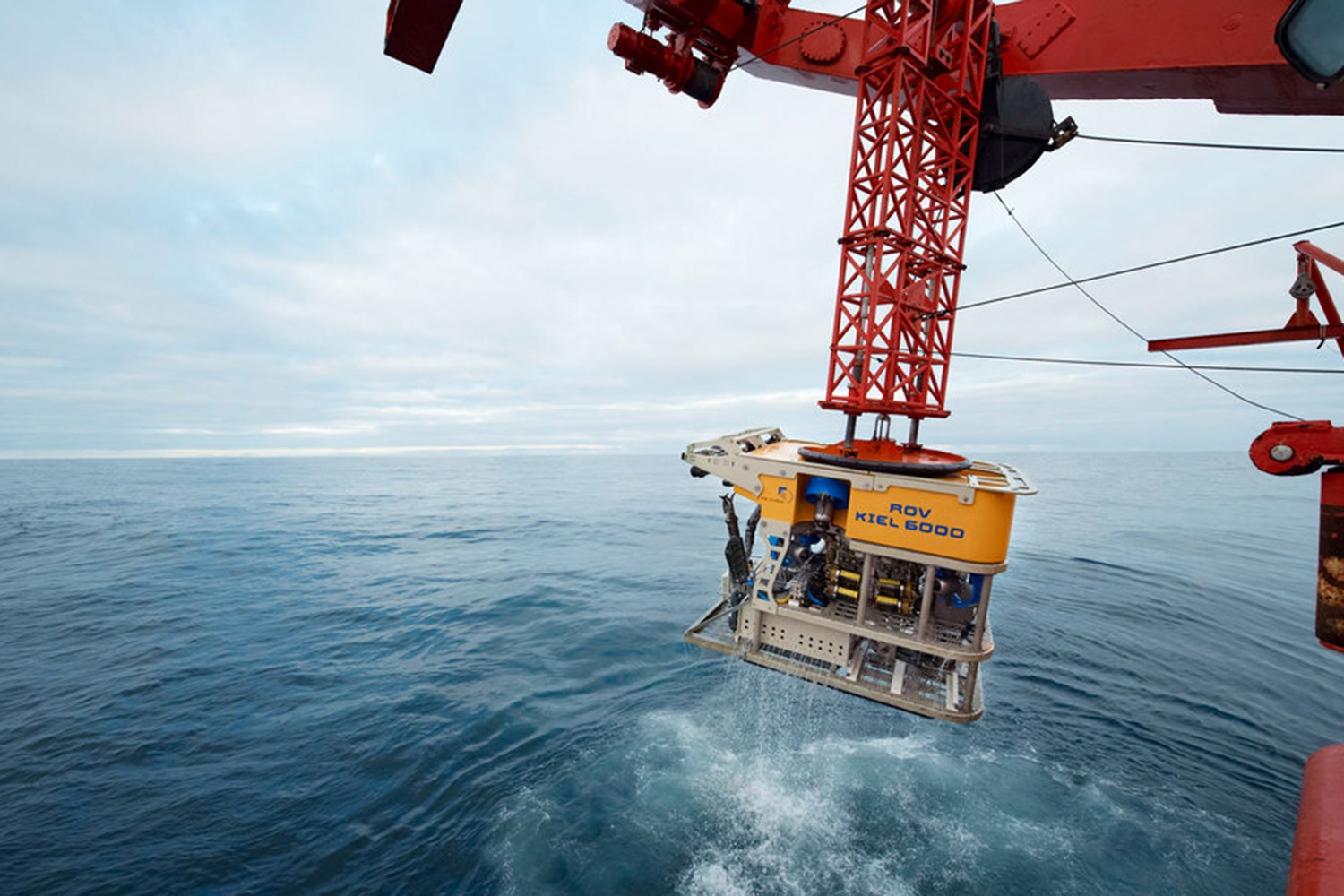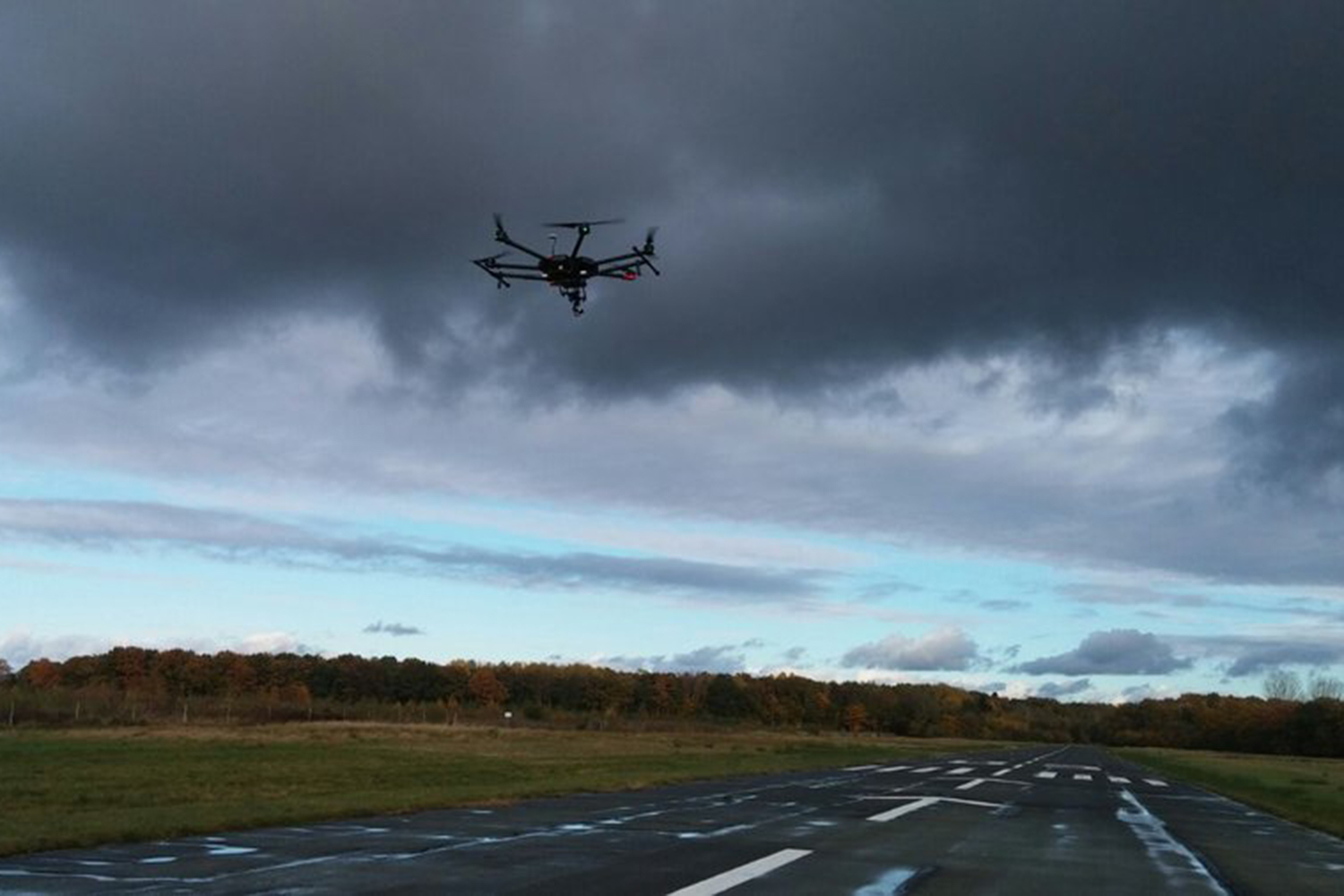The award ceremony formed part of the opening ceremony of the 41st International Congress of the Mediterranean Commission, a scientific congress attended by more than 500 scientists from 50 countries.
Kiel and Monaco have a common history in marine research. More than 100 years ago, Prince Albert I of Monaco and Kiel Professor of marine science Otto Krümmel met with Italian, Spanish and French colleagues in the recently opened Oceanographic Museum of Monaco in order to design a common strategy for the exploration of the Mediterranean. Based on this initiative, the Scientific Commission of the Mediterranean (Commission Internationale pour l'Exploration Scientifique de la Méditerranée, CIESM) was founded in 1919. It was and still is an intergovernmental organization, based in Monaco, whose objective is to promote, coordinate and plan scientific research in the Mediterranean. Today, the organization has 23 members although, despite the early commitment of Otto Krümmel, Germany was only able to join CIESM in 1969. The Presidency of CIESM is currently assumed by Monaco, in the person of H.S.H. Prince Albert II who for many years has been personally engaged in protecting the oceans. In 2006, for instance, he established the Fondation Albert II de Monaco for the protection and preservation of globally threatened ecosystems which draws attention to problems such as global warming and acidification.
During the inauguration of the 41st CIESM Congress on 12 September in Kiel, Germany, H.S.H. Prince Albert II received the German Ocean Award ("Deutscher Meerespreis") in the presence of the patron of the German Ocean Award, Prime Minister of Schleswig-Holstein Torsten Albig and the Federal Minister of Education and Research Professor Johanna Wanka.
Minister Johanna Wanka emphasized: "Topics such as the increasing ocean acidification or the impact of climate change, especially in high latitudes, are among the key challenges in the field of marine research and subjects which have been a particular focus of Prince Albert II´s efforts". "These are also major topics in the current science year 2016*17 'Oceans and Seas'", Wanka continued.
In his citation, transmitted via video message, EU-Commissioner Vella underlined the importance of multinational cooperation, especially in the field of marine and maritime research, which the EU supports by more than €200 million per year. "Without initiatives like CIESM, which has taken part in several projects funded by the EU's research programme, we cannot provide answers and solutions to the pressing issues in regard to the future of our oceans", Karmenu Vella said. "With his long-time commitment and support for the exploration, conservation and protection of the oceans, His Serene Highness Prince Albert II has made exceptional contributions, making him a worthy winner of the German Ocean Award", Commissioner Vella continued.
Dr. Cornel Wisskirchen, Regional Head of the Deutsche Bank AG for Northern Germany, also recognized the efforts of the Princely Monegasque family and especially of Prince Albert II. "I am not aware of any other country where marine research has received such a high priority for more than 100 years as in Monaco", Dr. Wisskirchen stated.
"For the last 10 years we have recognized people who have rendered outstanding services to the oceans," Schleswig-Holstein´s Prime Minister Torsten Albig and patron of the German Ocean Award stated. "For us in the state between the seas and with a long tradition in marine research, it is a particular honour that with this years award also the Scientific Commission of the Mediterranean is honoured, since Kiel marine research was involved in their start-up phase", Albig continued.
"As President of the Scientific Commission of the Mediterranean Prince Albert II. stands for successful international cooperation in marine research, a foundation upon which successful research institutions such as the GEOMAR also build", GEOMAR Director Professor Peter Herzig stated. "In order to answer pressing ocean science questions we need not only excellent scientists but also organizations such as CIESM to create the basis for successful marine research", Herzig continued.
In a first reaction, H.S.H. Prince Albert II. of Monaco said: "I am very honoured and accept this award also on behalf of all scientists active in CIESM, the Mediterranean Science Commission. We must continue our fight for marine research and exploration in order to save the oceans and their biodiversity. They are vital for the future of our planet. Without them, we will not be able to survive".
Background information on the German Ocean Award:
The 'Deutscher Meerespreis' (German Ocean Award) is awarded by the GEOMAR Helmholtz Centre for Ocean Research Kiel and the Deutsche Bank under the patronage of the Prime Minister of Schleswig-Holstein.
With a value of €10,000, the 'Deutscher Meerespreis' is awarded to well-known individuals from the fields of politics, business, science or the media who have shown special commitment to the cause of preserving and protecting the world's oceans or to communicating knowledge and educating the public about them. Awarded since 2009, the 'Deutscher Meerespreis' is the successor prize to the Elisabeth-Mann-Borgese-Meerespreis of Schleswig-Holstein that from 2006 to 2009 was likewise awarded to notable public figures. Past prize winners include Dr. Joe Borg, formerly the EU commissioner for Maritime Affairs and Fisheries; Prof. Dr. Boris Worm, renowned internationally as a marine ecologist, and Prof. Dr. Klaus Töpfer, formerly the executive director of the United Nations Environment Programme (UNEP).
Links:
www.geomar.de Das GEOMAR Helmholtz-Zentrum für Ozeanforschung Kiel
www.deutscher-meerespreis.de Deutscher Meerespreis
www.ciesm.org Mittelmeerforschungsrat
Contact:
Dr. Andreas Villwock (GEOMAR, Communication & Media), Tel.: 0431 600-2802
presse@geomar.de
…



